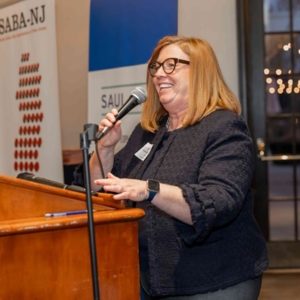Mobile Health Must Satisfy All Stakeholders, mHealthcon Speakers Say
{Beginning today, NJTechWeekly.com will cover some significant panel discussions and speeches from the mHealthcon conference, which took place last week at Rutgers University.}
Perhaps the greatest accomplishment of the mHealthcon conference last week is that it brought many mobile healthcare marketplace stakeholders together in one room. They included mobile device developers, app developers, doctors, hospitals, patients, insurance companies, entrepreneurs and the VCs and angels funding them.
Over the course of a single day, in session after session, the developers and the doctors, insurance companies and device makers, and the patients and the VCs began a dialogue. The question continuing to plague them all: how to make mobile devices and apps that delight all healthcare value chain members, pass regulatory hurdles and still bring a decent return on dollars spent to developing companies and their funders.
Keynoter Tom Wheeler, mHealth Alliance (Washington, D.C.) chairman, put it this way: “Mobile health has to stand up to cost-benefit analysis …We need to apply the market’s harsh discipline. Not all trials are scalable or sustainable …You have to feed the survivors and shoot the losers, and you have to do it early. And just because things are ‘doing good’ is not an exemption from that kind of rigorous analysis …Without this, proper resource analysis cannot happen.” Wheeler was referring to mobile health trials in developing countries, but his practical analysis was echoed by many conference speakers referring to mobile health apps here at home.
New Jersey is a good place to hold such a discussion because of its still-vibrant pharmaceutical and life sciences industry and proximity to Silicon Alley, as New York City’s tech community is often called. Additionally, many speakers thought, as did Steven Green, one conference organizer, the mobile health industry is at a “tipping point” toward commercialization. Interest in mobile health is booming. Conference organizers pointed to a number of high-powered dot-com pioneers who had made it their business to come to the event.
Participants on one panel debated how to bring mobile health apps to market in an environment where the end user is often not the same organization paying the bills. Moderator Steven Krein, of Startup Health(New York), said the sector is very difficult to address because, whether it’s “payers or providers, pharmacies or pharmaceutical companies, very few are startup-friendly.”
The panelists here had different thoughts about big pharma and big medicine and the obstacles to dealing with each sector. For example, Gopal Chopra of pingmd (New York) said his company faced hurdles in the value chain: “We are delivering a new route of communication from patient to doctor,” in a “regulated and perversely reimbursed environment.”
MedHelp’s (San Francisco) Richy Glassberg spoke about how difficult it was for a user-generated content site to obtain advertising from big pharma, the most regulated industry in all of advertising. Mobile healthcare is also highly regulated in pharma, he added. It took his company nine months to land an advertising trial with Pfizer Inc. (New York) and several months of testing thereafter before the firm came on board. The drug companies, he said, are terrified of getting a letter from the FDA so their lack of innovation is “stunning.”
WellDoc Inc.’s (Baltimore) Anand Lyer had a different point of view, however. He said his company had had a good experience with the drug company AstraZeneca (Wilmington, Del.). “There has to be a tangible value proposition,” he said. While drug companies are certainly risk-averse, there are ways to reach them, he indicated. “If you show them you can satisfy the FDA, satisfy security, satisfy privacy, and that you can do personalization and reach people in ways they hadn’t thought of before, they are willing.” Serge Loncar, CEO of CareSpeak Communications Inc., an East Brunswick, N.J.-based company with a two-way text messaging system for diabetes and mobile medication management, said, “Anybody in this space now should create a prototype very quickly and find a physician to test it.”
He suggested pediatric physicians are often more willing to try a new technology because their relationship with child patients is paramount. When designing its text messaging product, his company found a willing partner in Mount Sinai Medical Center’s (New York) pediatric liver transplant team. Patients who were at high risk for liver rejection were sent text messages reminding them to take their medicine. If they did not respond, alerts were sent to mom or dad. The trial was successful, decreasing the number of rejections significantly.


